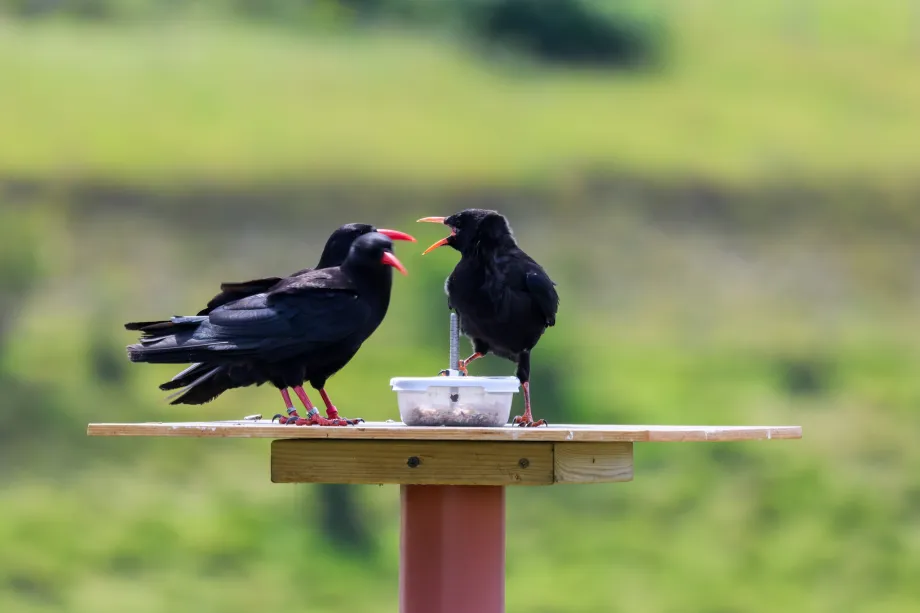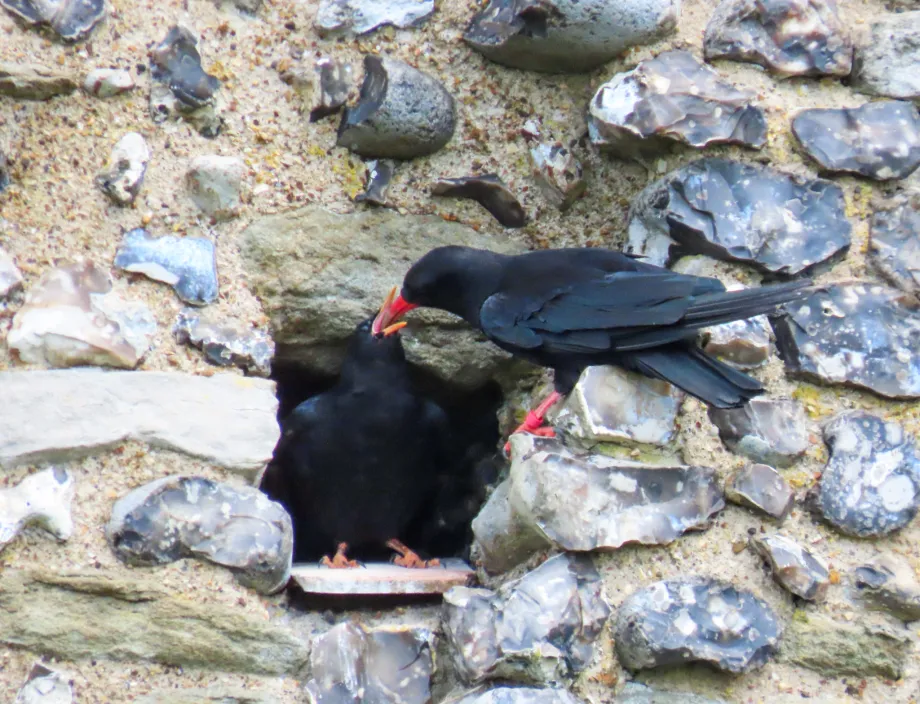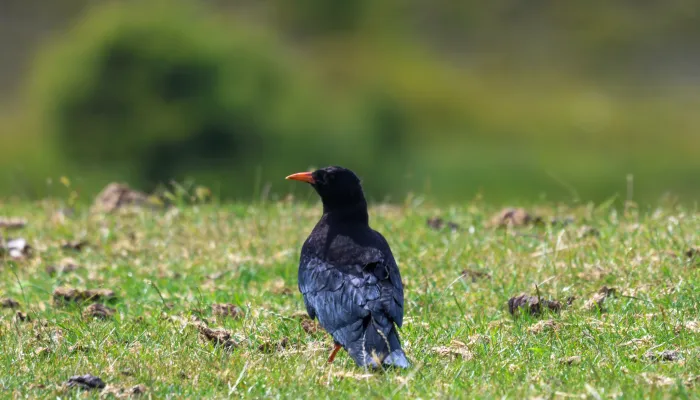
Liz Corry
The project’s five-year plan is to introduce up to 50 birds to the South East. The Kent population is also part of a broader strategy to link up chough populations across southern England, overseen by a collaborative steering group involving Natural England and other leading conservation bodies.
Behind the scenes, decades of work to restore and manage vital chalk grassland habitat in East Kent have laid the foundation for this species’ return. Kent Wildlife Trust has worked closely with landowners and partners including the National Trust and White Cliffs Countryside Partnership to bring conservation grazing back to the region - creating the ideal conditions for choughs in which to forage and breed.
Paul Hadaway, Director of Conservation and Engagement at Kent Wildlife Trust, said:
“This project shows what’s possible when long-term habitat restoration meets ambitious species recovery. A thriving chough population in Kent not only revives a lost species - it also proves the value of restoring rare habitats like chalk grassland, which are vital for a huge range of wildlife.”
Chalk grassland is among the most biodiverse habitats in the UK, supporting rich communities of wildflowers and invertebrates. The insects and larvae found in dung from grazing animals are a crucial food source for choughs during the breeding season.
Once a familiar sight in Kent, the red-billed chough vanished from the county more than 200 years ago, extirpated by habitat loss and persecution. Its cultural ties to the region endure - most famously on the coat of arms of Canterbury, and in the legend of Thomas Becket, where it’s said the bird’s red beak and legs were stained by the martyr’s blood.
In 2021, a specially constructed aviary was opened at Dover Castle to introduce visitors to the birds and their significance. Though the aviary has now been dismantled, the legacy continues - with staff and guests excited to witness wild choughs returning to the historic site.

Liz Corry
The project was funded by the Natural England Species Recovery Capital Grant Programme for 18 months until March this year, alongside conservationists and donors who have contributed to the Chough Appeal, which has brought in significant funding to help the project continue.

